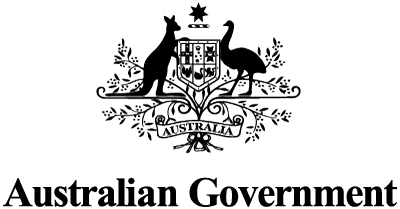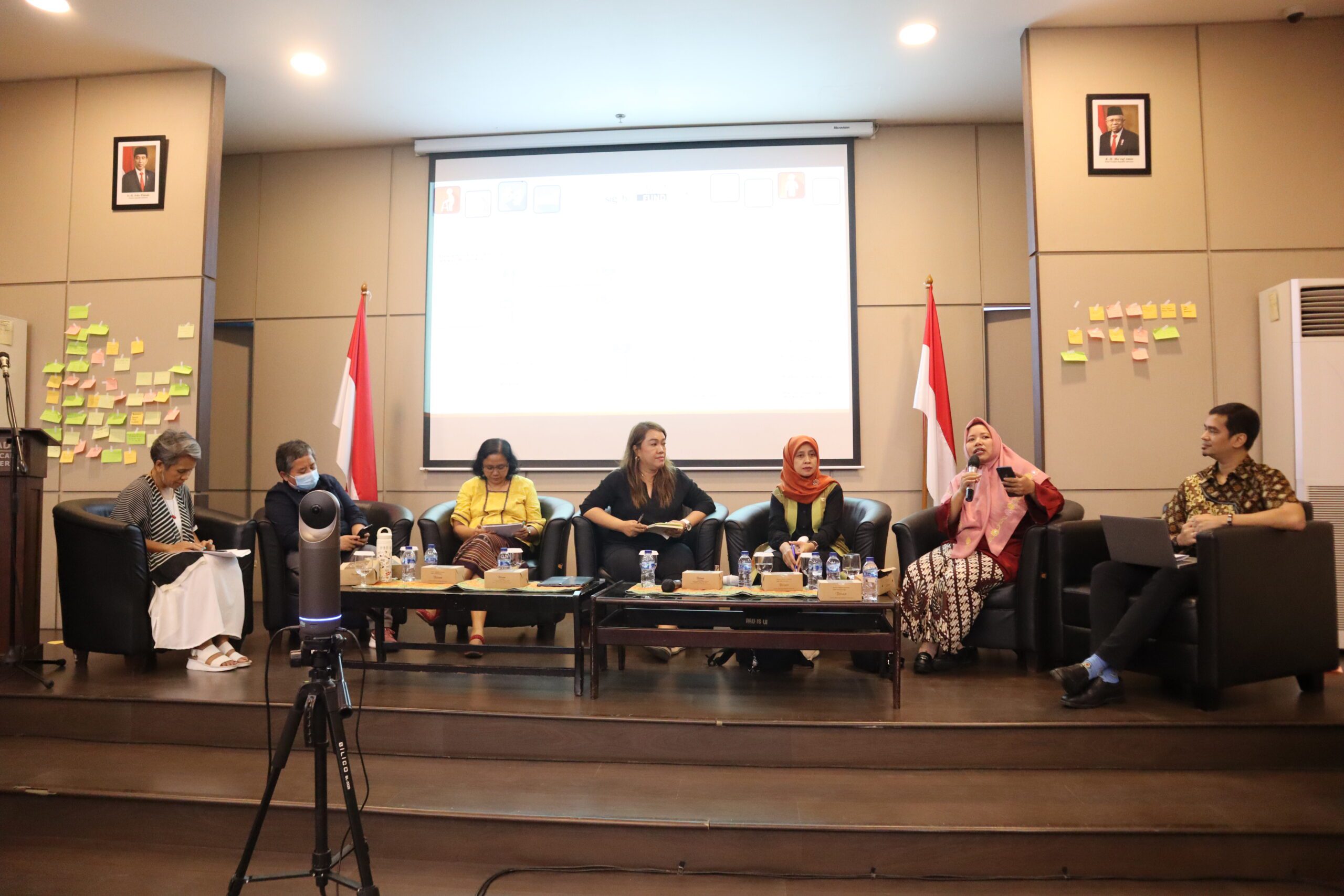Commemorating the 16 Days of Activism Against Gender-Based Violence (16DaysActivism), INKLUSI’s research partner, Cakra Wikara Indonesia (CWI), hosted a public discussion titled “Year-end Reflection: Assessing the Implementation of the Sexual Violence Criminal Acts Law” on December 6, 2023, at the Mochtar Riady Auditorium, University of Indonesia. The event was held in collaboration with the Faculty of Social and Political Sciences (KPPKS FISIP UI), Civil Society Network for the law on sexual violence Watch (JMS TPKS Watch), and supported by the Australia-Indonesia Partnership Towards Inclusive Society (INKLUSI).
Through INKLUSI, CWI is currently undertaking research on the “Needs Assessment related to the Implementation of Law on Sexual Violence Criminal Acts between Law Enforcement Associations (APH) and Regional Technical Service Units for the Protection of Women and Children (UPTD PPA).” During the opening remarks, Anna Margret, Executive Director of CWI, stated emphatically “We need to establish a new norm—one where sexual violence has no place.”
Aligned with this objective, the public discussion aims to address current developments in the implementation of the Sexual Violence Criminal Acts Law by bringing together academics, activists, practitioners, and religious leaders. Several INKLUSI partners, including KAPAL Perempuan, PEKKA, and ‘Aisyiyah, emphasised the need to prevent violence against women and children through changing social norms.
The speakers delved into practical approaches and challenges faced in the field, particularly regarding prevention, victim protection, case handling, and victim recovery. These discussions are relevant to the implementation of Law No. 12 concerning criminal acts of sexual violence, serving as the legal foundation for preventing and managing such cases since its enactment in 2022.
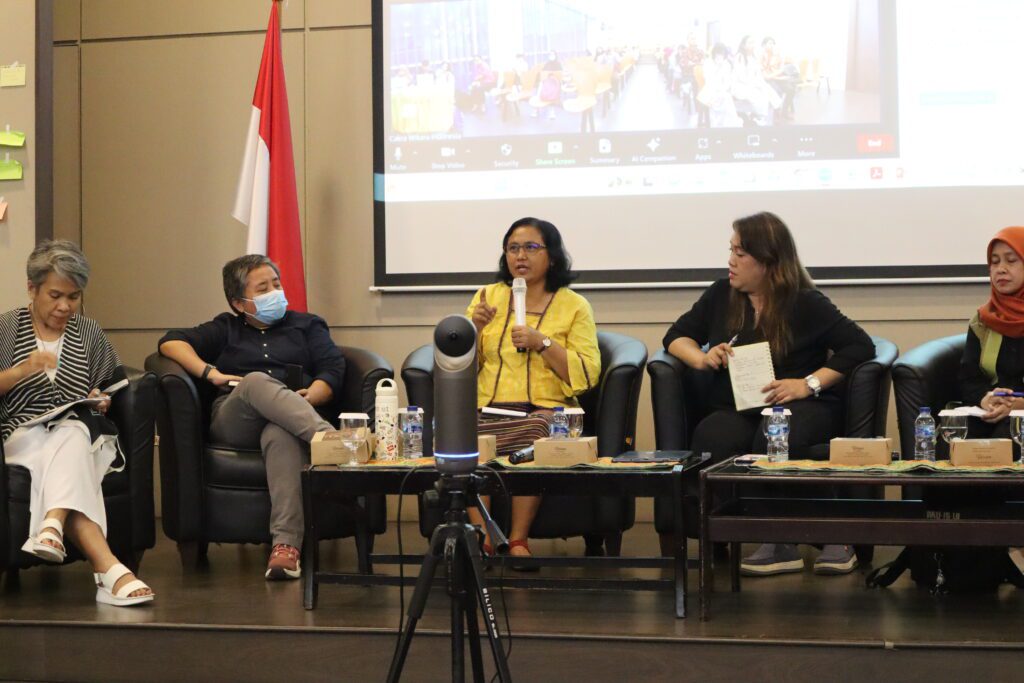
During this discussion, Budhis Utami underscored the steps taken by KAPAL Perempuan to enhance the implementation of the law through community dialogue, campaigns, and capacity-building initiatives. Budhis Utami, the Executive Director of KAPAL Perempuan, the Institute for Women’s Alternative Education, stated, “We consistently organise community discussions, training sessions, and public campaigns to boost public engagement in the implementation of the Law on Sexual Violence Criminal Acts.”
Similarly, Dwi Indah Wilujeng from PEKKA, the Foundation for Empowerment of Women Heads of Family, echoed comparable sentiments concerning the support for victims of sexual violence. Dwi Indah Wilujeng expressed, “To address the multiple and layered vulnerabilities in victims, providing support is crucial. This is our effort to mitigate the deeply rooted issue of sexual violence.”
Additionally, Siti Kasiyati outlined the collaborative efforts made by ‘Aisyiyah with the state apparatus to establish a safe and violence-free environment to prevent violence. “We are actively working to enhance the support of state institutions to realise environments that are free from sexual violence,” emphasised Siti Kasiyati.
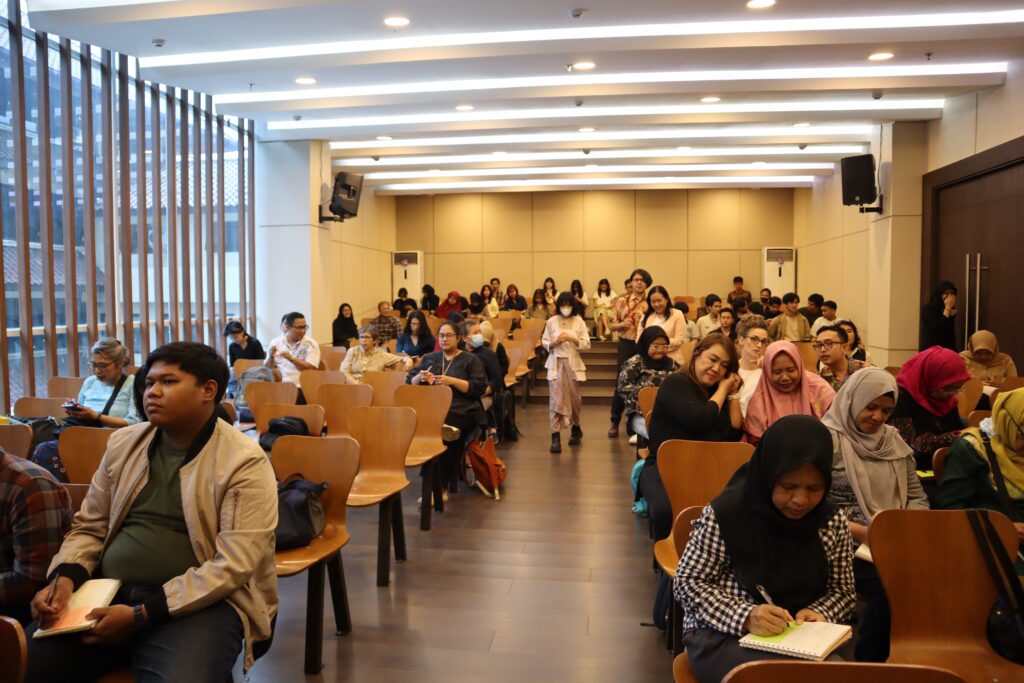
The discussion also reflected on endeavors aimed at raising public awareness about the broader context of protecting victims of violence and analyzed comprehensive mechanisms for handling cases. Increased awareness and support from all sectors of society are essential to realising an environment free of violence. This public discussion provided a comprehensive overview from multidimensional perspectives, serving as valuable input for policy refinement to achieve a society that is safe, just, and free from violence.
With the collective spirit and commitment of various stakeholders, it is hoped that efforts to prevent and address cases of sexual violence will be progressively strengthened, enabling victims of sexual violence to attain justice and holistic recovery.


